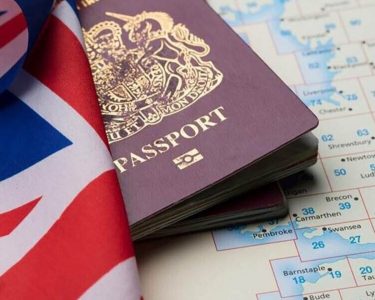UK immigration
New rules spark uncertainty for Nigerian workers
Summary
- The UK Home Office implemented significant changes to immigration rules on 22nd July 2025, raising skill and salary thresholds for Skilled Worker visas
- Over 100 occupations, previously eligible for sponsorship, are no longer valid for new applicants, particularly impacting the care, hospitality, and logistics sectors
- The general salary threshold for Skilled Worker visas has increased to £41,700, and overseas recruitment for care workers has ceased
- Thousands of Nigerian workers in the UK, many in the affected sectors, face potential job loss and deportation risks due to these reforms
London, UK – A fresh wave of anxiety has swept through the Nigerian community in the UK following the implementation of stringent new immigration rules by the Home Office on 22 July 2025. These changes, part of the broader “Restoring Control over the Immigration System” White Paper published in May, aim to curb net migration and prioritise higher-skilled labour, but have left thousands of Nigerian workers facing an uncertain future.
The most impactful change is the increase in the minimum skill level for Skilled Worker visas from RQF (Regulated Qualifications Framework) level 3 to RQF level 6, effectively requiring a graduate-level qualification. This move reverses a 2020 adjustment that had lowered the threshold to RQF 3 to assist businesses post-Brexit.
As a direct consequence, approximately 100 to 180 occupations, previously eligible for sponsorship at RQF levels 3–5, are now off-limits for new visa applicants. Sectors hit hardest include healthcare, hospitality, logistics, agriculture, and social care. Accompanying the elevated skill requirement are significant increases in salary thresholds. The general annual salary for a Skilled Worker visa has risen from £38,700 to £41,700.
While specific thresholds apply to PhD holders and those on the Immigration Salary List (ISL) or New Entrants, the higher base figure presents a considerable hurdle. For instance, Health and Care Visa roles, such as nursing auxiliaries and care workers, maintain a minimum of £25,000 or the national pay scale, whichever is higher. However, a critical change is the immediate closure of new overseas recruitment for care workers (SOC codes 6135 and 6136) as of 22 July 2025, driven by concerns over exploitation and non-compliance within the sector.
The government has introduced an Immigration Salary List (ISL), which temporarily includes some RQF 3-5 roles (like care managers and laboratory technicians) and allows for reduced salary thresholds, but this list is set to be phased out by 31 December 2026.
A new interim Temporary Shortage List (TSL) covers 52 critical occupations, though workers on this list cannot bring dependants or benefit from salary/visa fee discounts. The Migration Advisory Committee (MAC) is slated to review the TSL in spring 2026, with an emphasis on sectors demonstrating robust domestic workforce strategies.
For those already in the Skilled Worker route or with a Certificate of Sponsorship (CoS) issued before 22 July 2025, transitional arrangements offer some relief. These individuals are exempt from the new RQF 6 skill threshold and can renew their visas or change employment within RQF 3–5 roles, provided they meet the updated salary requirements.
Crucially, there is no transitional relief for the new salary thresholds, as they align with updated 2024 Annual Survey of Hours and Earnings (ASHE) data. Other changes include a 32% increase in the Immigration Skills Charge, adding further costs for sponsoring employers, and a restriction on TSL workers bringing dependants.
Concerning implications for Nigerians in the UK
The changes have sent ripples of alarm through the large Nigerian migrant community in the UK, particularly those engaged in the healthcare and care sectors. Over 10,000 Nigerians on existing Certificates of Sponsorship or Skilled Worker visas are potentially at risk of deportation if their roles have been delisted or if their employers cannot meet the new £41,700 salary threshold upon visa renewal.
Personal stories underscore the anxiety. A Nigerian caregiver, interviewed by PUNCH, shared her despair as her sponsorship ends in August 2025 and her role is now delisted, making it “impossible” to secure new employment. Another worker highlighted their employer’s inability to afford the higher salary threshold, leaving their visa renewal uncertain.
Data from the UK Home Office shows that while 26,715 Skilled Worker visas were granted to Nigerians in 2023, up from 8,491 in 2022, visa issuances declined in 2024, particularly for Health and Care Worker visas, reflecting the tightening landscape even before these latest reforms.
Nigerians are heavily represented in sectors directly impacted. The closure of overseas care worker recruitment and the delisting of roles like nursing auxiliaries (unless they work in environments with registered nurses) directly affect many. Kayode Alabi, a UK-based Nigerian travel agent, told PUNCH that while immediate dismissals haven’t occurred, non-renewal of visas for those in delisted roles would effectively render them “illegal immigrants” without new sponsorship.
The increased salary thresholds pose significant economic and personal challenges, especially for those in care roles where salaries often range from £25,000 to £30,000. Employers may struggle to adjust pay amidst current inflation, limiting job opportunities.
The emotional toll is evident; Eniola, a Nigerian student, recounted her mother’s fear of job loss as a caregiver, impacting their family’s stability. Commentators like Okewole, cited by Sahara Reporters, predict that over 10,000 Nigerians could be compelled to return home or seek opportunities in other countries like Canada or Australia due to limited options in the UK.
Broader impact on UK employers and policy rationale
Beyond individual workers, the new rules carry substantial implications for UK employers and various sectors. The Homecare Association has warned of “devastating consequences” for the social care sector, which has become heavily reliant on international workers to support the elderly and disabled. NHS Employers noted that even entry-level band 3 roles, such as healthcare assistants, might not meet the £25,000 threshold for the Health and Care Visa, complicating recruitment.
Other sectors, including hospitality, logistics, and agriculture, are also poised to face recruitment challenges as 100 to 180 roles are no longer sponsorable. Employers are now pressed to audit their sponsored roles, adjust salary budgets to meet the new £41,700 threshold, and, critically, pivot towards domestic workforce strategies. The government’s emphasis is clear: reduce reliance on overseas labour by training and employing UK workers.
The policy changes align with the Labour government’s aim to significantly reduce net migration, which stood at an estimated 866,000 in 2023. The Immigration White Paper signals a “fundamental shift” towards higher skills and lower overall migration numbers, also seeking to address concerns about exploitation and non-compliance reported in sectors like social care.
While fewer visa applications might reduce Home Office revenue from fees, the government views this as a necessary trade-off for long-term domestic workforce sustainability.
Criticisms and recommendations for affected individuals
Despite the government’s rationale, the reforms have drawn sharp criticism. The abrupt delisting of roles and substantial salary hikes have left many migrants in limbo, facing job loss, visa non-renewal, and the prospect of deportation. The care sector, already under immense pressure, is described by critics as losing a “lifeline” with the halt on overseas recruitment.
Economically, many argue that the £41,700 threshold is unrealistic for numerous roles, potentially deterring employers from sponsoring migrants and exacerbating existing labour shortages. The lack of transitional arrangements for salary increases, unlike skill thresholds, places immediate and significant pressure on both employers and workers.
For affected Nigerians in the UK, urgent action is advised. It is crucial to check your current visa status and confirm if your role is on the ISL or TSL, or if you qualify for transitional arrangements (e.g., if your CoS was issued before 22 July 2025). Engage with your employers immediately to discuss how they plan to meet the new salary thresholds or if a CoS can be issued before the deadline.
Exploring alternative visa routes, such as the Graduate Visa if eligible, or upskilling to meet RQF 6 requirements, could also be viable options. Seeking legal advice from immigration experts is highly recommended to navigate these complex changes, particularly concerning visa extensions or in-country switching. Additionally, monitoring the MAC’s 2026 review, which may adjust salary thresholds or TSL criteria, could offer future relief.
The UK’s latest immigration reforms represent a pivotal moment, fundamentally reshaping the landscape for international workers. The impact on Nigerians in the UK is already profound, with a palpable sense of urgency and concern for thousands facing an uncertain future. Swift and informed action is paramount for those affected to secure their status amidst these sweeping changes.
For further details and official guidance, individuals are encouraged to visit the UK government’s official immigration pages at www.gov.uk or consult the Immigration White Paper.
What are your thoughts on the impact of these new rules on the Nigerian workers, or the sectors they heavily contribute to?
Leave comments below.







